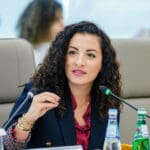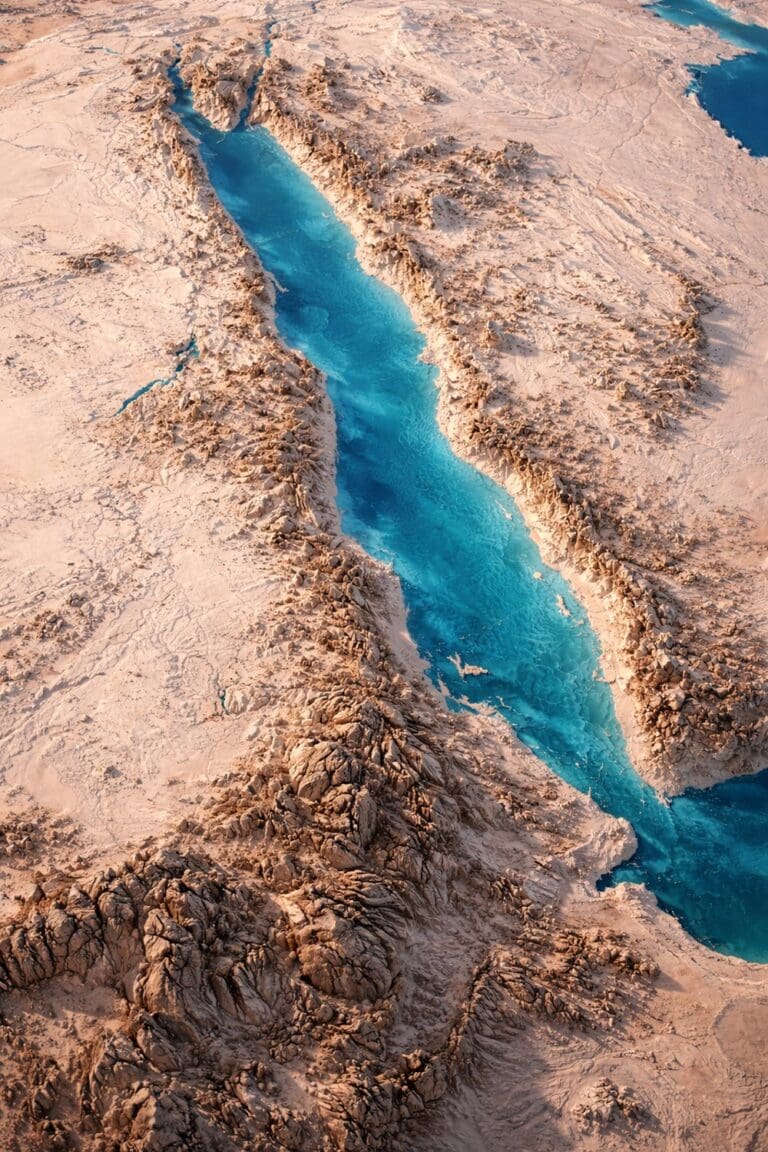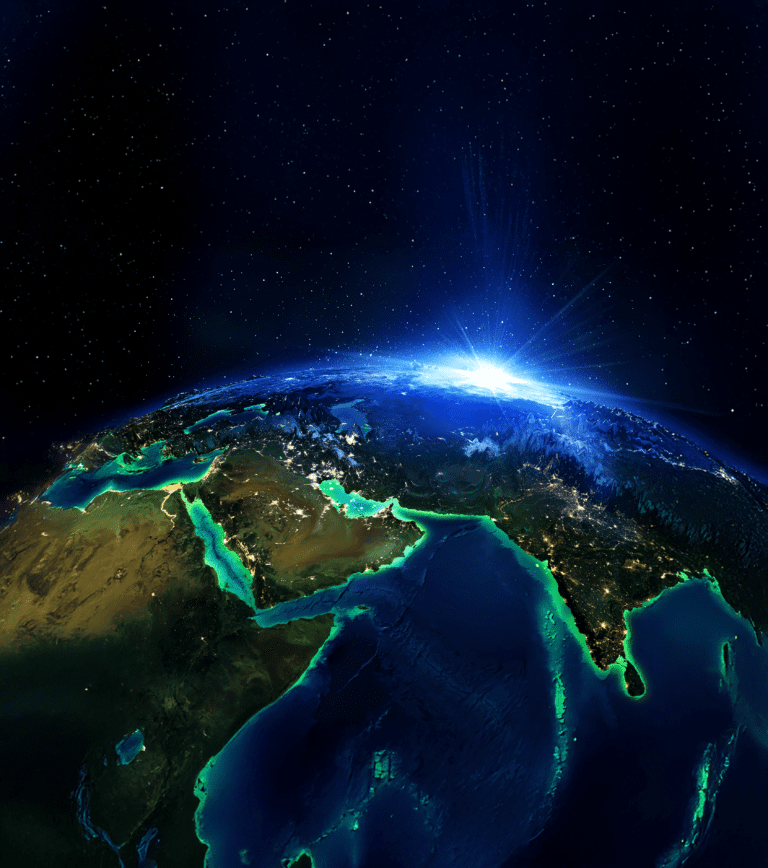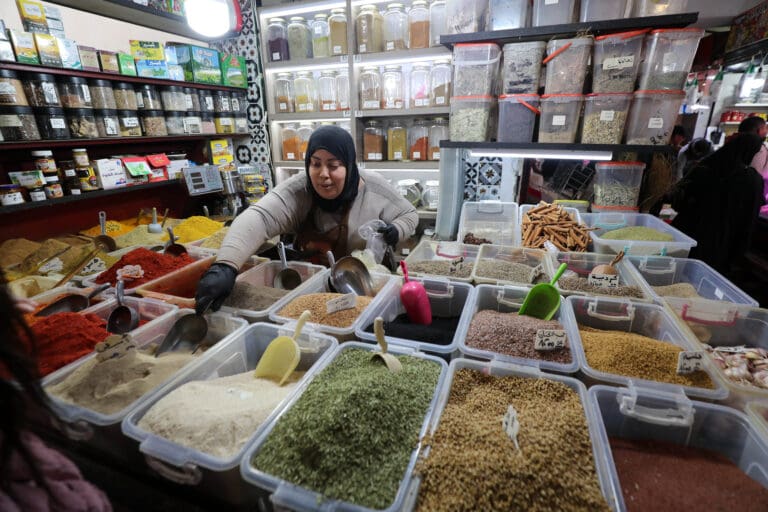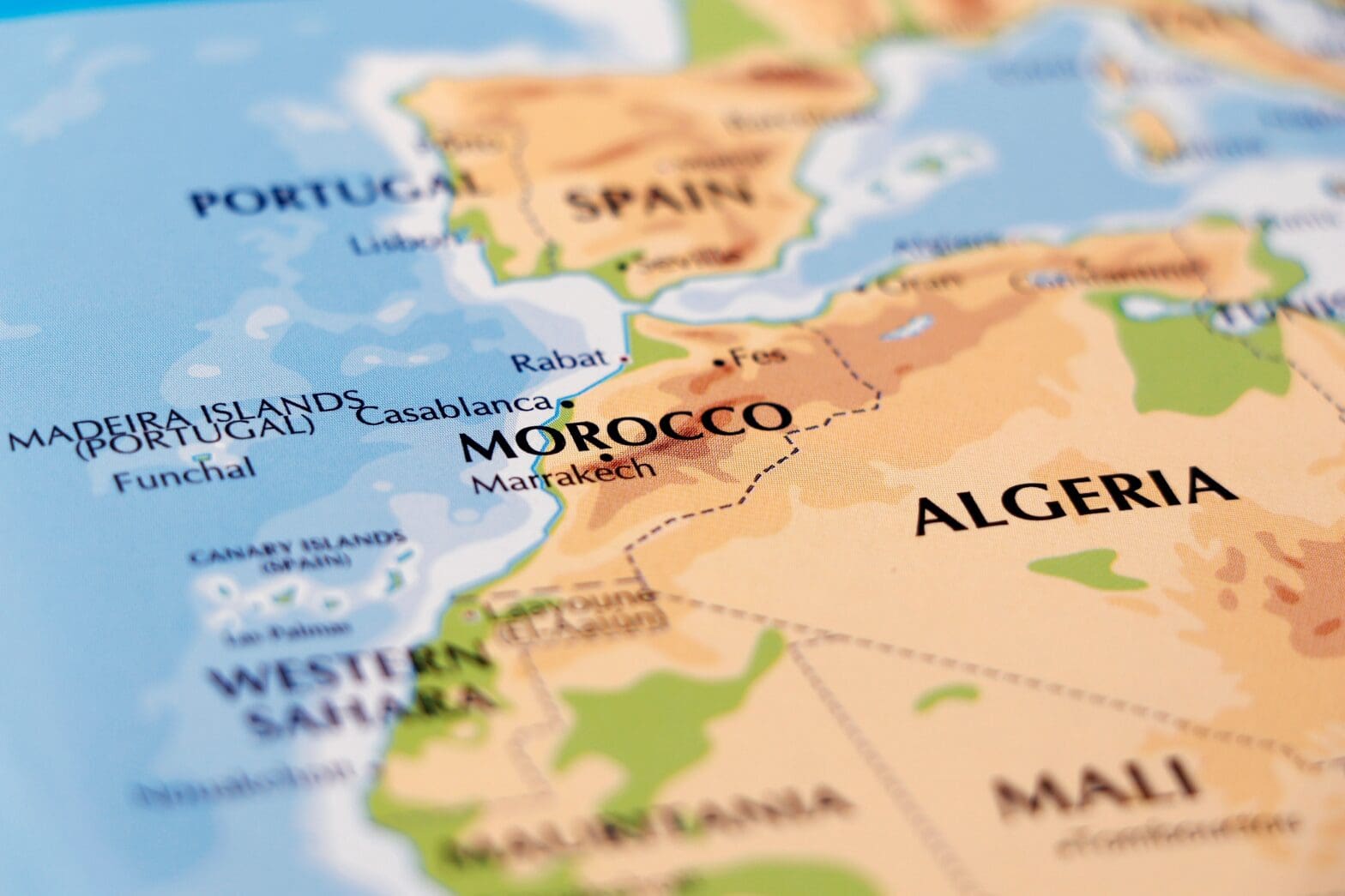
Weaponized Words:
How to De-Escalate the Algerian-Moroccan Conflict
Policy Note, September 2025
Algeria and Morocco’s deep-seated distrust, historical grievances, and escalating information warfare, exemplified by their antagonistic media narratives and online disinformation campaigns, highlight the urgent need for improved crisis management. In the absence of formal communication channels, this information war risks provoking an unintended escalation. This policy note discusses the need for both Algeria and Morocco to immediately de-escalate their state-sponsored media attacks and establish robust, direct lines of communication between them. It proposes a mandatory cessation of hostility by state media and the establishment of a multi-tiered hotline system to prevent miscalculations and build a basic level of trust. By fostering direct communication, proactive crisis management, and responsible media practices, these interventions would aim to mitigate immediate tensions, prevent unintended escalation, and contribute to stability in North Africa.
Introduction
Relations between Algeria and Morocco are passing through a critical phase of instability, fueled by deep-seated distrust, historical grievances, skewed perceptions of escalation, a rapid arms race, and competing regional ambitions. As a result, both are increasingly relying on military deterrence over diplomacy. This situation is further exacerbated by their antagonistic views on numerous issues, particularly the Western Sahara dispute. The entrenched positions of both countries on that issue have resulted in a dangerous stalemate, where domestic political pressures prevent meaningful concessions—a dynamic known as the “strength of weakness.”1 Within this volatile context, intense media coverage amplifies the consequences of any perceived weakness, driving both sides toward escalation.
These tensions are being further inflamed by a dangerous information war. Media platforms in both countries have become battlegrounds of disinformation and hostile rhetoric. Amplified by the pervasive use of social media, this war of words risks triggering unintended consequences. While there is a worrying potential for acts of reprisal against citizens residing in either country or abroad, particularly in countries with significant Algerian and Moroccan communities like France, the evidence suggests that relations between the two countries’ citizens remain relatively normalized. Therefore, this policy note focuses on state-led and fueled escalation risks, highlighting the urgent need for both countries to temper the disinformation and hostile rhetoric of state media and establish a direct hotline or backchannel for communication.
To mitigate this escalating crisis, this policy note proposes two key interventions: First, given their influence and control over state-run media, both Algeria and Morocco should cease all media attacks against each other, a critical trust-building measure. Both sides should focus on halting sensational and hostile coverage through state-run media outlets (TV, radio, online state portals/accounts), and instead focus solely on factual reporting of news. Following this, both should implement a joint media code of conduct to foster a more sustainable and responsible media environment. This code would emphasize accuracy, objectivity, and balanced reporting, as well as discouraging inflammatory language and promoting constructive dialogue. While the immediate halt to state-sponsored hostility is crucial, this broader code of conduct could be implemented at a later stage to consolidate long-term media responsibility and promote understanding. Furthermore, both governments should work with social media companies to curb the spread of harmful online content.
Second, Rabat and Algiers must establish a multi-tiered, secure and direct backchannel communications system. This system should include, at the bare minimum, a direct line and a designated contact within each country’s Ministry of Foreign Affairs. While informal lines may be in place, their reliability is uncertain in the face of an escalatory situation. A hotline would formalize communication and ensure operational readiness for crisis management on both sides, building trust and enabling rapid, confidential communication in order to manage and de-escalate potential crises, especially those stemming from escalatory media campaigns and social media disinformation. This hotline should operate on multiple levels: a direct line between the heads of government for high-level strategic communication, and separate, dedicated channels between the respective Ministries of Defense and Foreign Affairs for operational and diplomatic coordination. This would ensure timely intervention and help mitigate potential crises.
Finally, this policy note stresses the importance of this framework, which aims to de-escalate immediate tensions and potentially avert conflict, while building a possible path toward greater trust and eventually peace between the two North African neighbors.
The Maghreb’s Toxic Web
The conflict between Algeria and Morocco over Western Sahara has simmered for decades, and the period since 2020 has witnessed a marked heightening of tensions. Algiers has consistently supported the Polisario Front’s pursuit of independence for the region, a claim vehemently contested by Rabat, which considers Western Sahara an integral part of its sovereign territory. This long-standing dispute escalated dramatically in 2020 when Morocco normalized relations with Israel in exchange for U.S. recognition of its sovereignty over Western Sahara, a diplomatic maneuver that further inflamed tensions, setting the stage for a series of escalations in 2021.
In July 2021, Morocco’s Permanent Representative to the United Nations, Omar Hilale, made a controversial declaration asserting the right of the Kabyle people in Algeria to self-determination. This further exacerbated the existing strain in relations between the two countries. The following month, then-Israeli Foreign Minister Yair Lapid visited Rabat, where he engaged in discussions with his Moroccan counterpart, Nasser Bourita, and expressed concerns about Algeria’s growing influence in the region.
Just days after that, media outlets brought to light a vast espionage operation orchestrated by the Moroccan intelligence services, involving the use of Israeli Pegasus spyware, and targeting numerous foreign figures including Algerian officials and citizens. This revelation further fueled tensions and ultimately led Algeria to sever diplomatic ties with Morocco on August 24, 2021, citing a series of “hostile actions” by its neighbor. In November of the same year, three Algerian truck drivers were killed in a bombing as they traveled home from Mauritania, a significant escalation for which Algiers held Morocco responsible. In September 2023, the Algerian coast guard shot and killed two Moroccan jet skiers who had crossed the maritime border into its coastal waters, further deepening the rift.
The conflict between Algeria and Morocco extends beyond diplomacy, dominating the traditional and social media both domestically and within their respective diasporas abroad. These platforms have become battlegrounds in an information war where both sides employ disinformation, twisting facts, misinterpreting information, and fabricating news to support their narratives. This propaganda permeates all levels of society, including the cultural sphere, creating a war of words marked by a relentless campaign of mutual denigration. Each side constructs narratives that praise their own culture while simultaneously denigrating the “other,”2 fostering an environment of antagonism, hate, and distrust.
Both governments, while actively leveraging domestic media to further their respective narratives, appear to underestimate the potential for this escalating war of words to spiral into a serious confrontation with destabilizing regional consequences.3 Though each side may seek to deploy its media influence strategically, they risk fueling a conflict that could ultimately escape their control. This is exemplified by media reports that have amplified escalatory rhetoric, suggesting that Algeria is preparing for a “high-intensity war” with Morocco.4
Studies have shown that media coverage can exacerbate conflicts, particularly when major news outlets amplify disputes and frame narratives in ways that promote hostility.5 The content and framing of media reports can be just as crucial as the reporting itself, influencing public opinion and potentially pushing opposing sides toward more aggressive stances.6 In short, once major news outlets seize upon a conflict, the risk of escalation increases significantly.
This dangerous trajectory is further complicated by the evolving nature of information dissemination in the digital age. No longer the exclusive domain of traditional journalism and factchecking, news coverage is now shaped by a diverse array of actors and tools; any individual with a smartphone and an internet connection can create a narrative, especially given the rapid evolution of Artificial Intelligence.
This borderless dissemination of information challenges the traditional gatekeeping role of established media outlets and is steadily eroding the ability of governments to control over the flow of information. Internet penetration in both Algeria and Morocco has grown rapidly, with the former reaching 33.4 million internet users (72.9% of the population) in early 2024,7 while Morocco reached 34.4 million users (90.7% penetration) in the same period.8 This widespread access to online platforms, coupled with the rise of social media as a primary news source, creates fertile ground for the rapid dissemination of information—and misinformation.
A recent survey indicated that 43% of Algerians and 36% of Moroccans consider social media their primary source for breaking news.9 This reliance contributes to a toxic online environment, turning platforms like Facebook, YouTube and X (formerly Twitter) into breeding grounds for hate speech, misinformation, and insults between Moroccans and Algerians, including diaspora communities.10 Hashtags laden with vitriol regularly go viral, showcasing the animosity that pervades even seemingly trivial online interactions. This digital battlefield amplifies existing tensions, contributing to a climate of distrust and hostility that transcends geographical borders. Social media coverage can have profound consequences for foreign policy, impacting diplomatic relations, public opinion, and even the course of international conflicts.11
Dialing Down Discord
With external actors, notably European states and the U.S., demonstrating hesitancy to intervene—and in some instances, inadvertently exacerbating tensions—the imperative falls upon Algeria and Morocco themselves to resolve the situation. This self-reliant approach is crucial for managing the escalating situation and preventing an accidental conflict, thereby safeguarding the stability of North Africa. To initiate this critical process, the highest levels of leadership in Algeria and Morocco must urgently recognize the multifaceted challenges facing efforts at crisis prevention and management. They must then direct their respective governments to actively pursue the reduction of these obstacles, utilizing all available channels, both official and unofficial.
First, the immediate and comprehensive de-escalation of state-sponsored information warfare is imperative. Given their direct influence over state-run media, both Algeria and Morocco must cease all attacks against each other, a fundamental step for building trust. This entails a decisive shift from sensationalist and antagonistic coverage on TV, radio, and online state platforms toward a strict adherence to factual reporting of news.
Next, they should adopt a joint media code of conduct to cultivate a sustainable and responsible media environment. This broader code could be phased in step by step to ensure sustained media responsibility and enhance understanding. It would underscore accuracy, objectivity, and balanced reporting, actively deter inflammatory language, and encourage constructive dialogue. Effective implementation would require a collaborative effort among media organizations, academic institutions, and both governments. This would include strengthening fact-checking, supporting independent initiatives, establishing credible standards, and organizing joint workshops to foster balanced narratives and responsible reporting.
Second, direct and reliable communication channels are vital to prevent miscalculation and escalation. To achieve this, the Algerian and Moroccan governments should jointly establish a robust, dedicated communication hotline. Learning from the strategic imperatives highlighted in discussions on crisis management between the U.S. and China, this hotline should not be merely a symbolic gesture, but a fully operational mechanism.12 To ensure comprehensive crisis management, this hotline should operate on multiple levels: a direct line between the heads of government for high-level strategic communication, and separate dedicated channels between the respective Ministries of Defense and Foreign Affairs for operational and diplomatic coordination. This would ensure timely intervention and help mitigate potential crises.
Such a hotline would offer immediate communication during crises, enabling rapid dialogue to address emerging issues and prevent misunderstandings. Beyond crisis situations, this hotline would also facilitate ongoing diplomatic engagement and maintain communication during periods of heightened tension. Critically, it would enable the exchange of essential information, such as updates on escalating media attacks and disinformation campaigns, military movements, and potential security breaches, ensuring both sides are informed and can respond appropriately.
Conclusion
The interventions proposed above—a mandatory cessation of hostility in state media and a secure, multi-tiered hotline—offer a pragmatic approach to de-escalating the high-stakes information war between Algeria and Morocco. Given the current geopolitical landscape, marked by the absence of external mediation between the two parties, a direct, well-defined hotline would represent both a trust-building mechanism and a proactive diplomatic measure, empowering the two countries to manage their relationship and mitigate the risk of unintended escalation. It is vital that both the Algerian and Moroccan leadership prioritize this mechanism if it is to be effective and help avoid potentially devastating consequences.
By fostering direct communication and responsible media practices, this framework aims to mitigate immediate tensions and prevent unintended escalation. Though insufficient for building sustainable peace on their own, these two key interventions would be vital first steps toward de-escalating immediate tensions and laying the groundwork for conflict prevention between the two North African neighbors.

